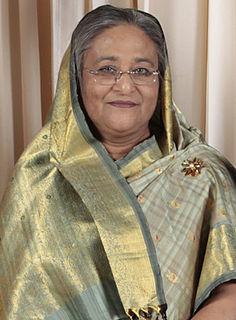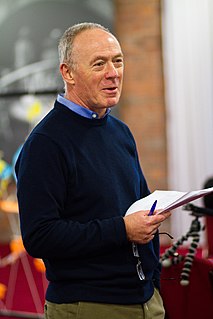
The Nationalist Party is a Christian democratic and conservative political party in Malta. It is one of two major contemporary political parties in Malta, along with the governing Labour Party. The Nationalist Party is currently in Opposition to the Labour Party.
The Free Trade Party which was officially known as the Australian Free Trade and Liberal Association, also referred to as the Revenue Tariff Party in some states, was an Australian political party, formally organised in 1887 in New South Wales, in time for the 1887 colony election, which the party won. It advocated the abolition of protectionism, especially protective tariffs and other restrictions on trade, arguing that this would create greater prosperity for all. However, many members also advocated use of minimal tariffs for government revenue purposes only. Its most prominent leader was George Reid, who led the Reid Government as the fourth Prime Minister of Australia (1904-5). In New South Wales it was succeeded by the Liberal and Reform Association in 1902, and federally by the Anti-Socialist Party in 1906. In 1909, the Anti-Socialist Party merged with the Protectionist Party to form the Commonwealth Liberal Party.

The Croatian Peasant Party is a centrist political party in Croatia founded on December 22, 1904 by Antun and Stjepan Radić as Croatian Peoples' Peasant Party (HPSS). Brothers Radić considered that the realization of Croatian statehood was possible within Austria-Hungary, but that it had to be reformed into a Monarchy divided into three equal parts – Austria, Hungary, Croatia. After the creation of Kingdom of Yugoslavia in 1918, Party requested for the Croatian part of the Kingdom to be based on self-determination. This brought them great public support which columned in 1920 parliamentary election when HPSS won all 58 seats assigned to Croatia.

The United Democratic Party (UDP) is one of the two major political parties in Belize. It is the ruling party, having won the 2008, 2012 and 2015 general elections. A centre-right conservative party, the UDP is led by Prime Minister of Belize Dean Barrow.

The Socialist People's Party of Montenegro is a socially conservative and social-democratic opposition political party in Montenegro. It is part of the Key Coalition, an opposition political alliance in Montenegro. It has 2 of 3 MPs which it won in the 2016 parliamentary election. The party is pro-European Union and anti-NATO.

The Union of Democratic Forces is a political party in Bulgaria, founded in 1989 as a union of several political organizations in opposition to the communist government. The Union was transformed into a single unified party with the same name. The SDS is a member of the European People's Party (EPP). In the 1990s the party had the largest membership in the country, with one million members, but has since splintered into a number of small parties totaling no more than 40,000 members. The SDS proper had 12,000 members in 2016.

Bulgaria elects on national level a head of state - the president - and a legislature. The president is elected for a five-year term directly by the people. The National Assembly has 240 members, elected for a four-year term by proportional representation in multi-seat constituencies with a 4% threshold. Bulgaria has a multi-party system, in which no one party often has a chance of gaining power alone, and parties must work with each to form governments.
Elections in Hungary are held at two levels: general elections to elect the members of the National Assembly and local elections to elect local authorities. European Parliament elections are also held every 5 years.

GERB is a conservative, populist Bulgarian political party established on 13 March 2006. The initials of the party герб/gerb also translate as "coat of arms" in Bulgarian. It is Bulgaria's second-largest party by membership.

European elections to elect 72 French Members of the European Parliament were held on Sunday 7 June 2009.

Parliamentary elections were held in Bulgaria on 5 July 2009. With 40% of the vote, the decisive winner of the elections was the established in 2006 personalistic party of Boyko Borisov - GERB. The Socialist Party, in power before the election, was in second place, with around 18%. Оnce-ruling National Movement Simeon II did not cross the 4% threshold and won no seats. The turnout was 60.2%, one of the lowest ever. Following the election, GERB leader Boyko Borisov became Prime Minister. Just like all the previous parliamentary elections since the fall of communism, the government was not re-elected.
Order, Law and Justice was a conservative political party in Bulgaria. Its main focus is on fighting crime and corruption. It won the minimum ten seats in the National Assembly at the 2009 election, making it the smallest of the six parties in the legislature. Later some of the deputies left the parliamentary group and it broke the minimum of ten, which inevitably made all parliamentary representatives of the party independent deputies.

General elections were held in Bangladesh on 5 January 2014, in accordance with the constitutional requirement that the election must take place within the 90-day period before the expiration of the term of the Jatiya Sangshad on 24 January 2014. The elections were controversial, with almost all major opposition parties boycotting and 153 of the total 300 seats being uncontested. Around 21 people were killed on election day.

Parliamentary elections were held in Bulgaria in January and February 1880. Low voter turnout in some constituencies led to the results being invalidated and the elections re-run. Unlike in former elections, the government did not attempt to influence the result, resulting in the opposition Liberal Party retaining their majority in the National Assembly. Of the 162 seats, the Liberal Party won 103 and the Conservative Party won 50. When the newly elected Assembly convened, Liberal Party member Petko Karavelov was elected Chairperson.

The Liberal Party was a political party in Bulgaria and the main force in domestic politics between independence in 1878 and the mid-1880s when it dissolved into several different factions.

The Liberal Party, also known as the Radoslavists was a political party in Bulgaria from 1887 until 1920.

Parliamentary elections were held in Bulgaria on 5 October 2014 to elect the 43rd National Assembly. GERB remained the largest party, winning 84 of the 240 seats with around a third of the vote. A total of eight parties won seats, the first time since the beginning of democratic elections in 1990 that more than seven parties entered parliament. Boyko Borisov then became prime minister as head of a coalition with the Reformist Bloc and with outside support from the Patriotic Front and the Alternative for Bulgarian Revival.

General elections were held in Cambodia on Sunday, 29 July 2018 to elect members of the sixth National Assembly. Polling stations opened at 07:00 and closed at 15:00. The number of registered voters has decreased for the first time since 1993 and was down 13% from the 2013 general elections.

This article is the Electoral history of Sir Charles Tupper, the sixthth Prime Minister of Canada. A Conservative, he became prime minister upon the resignation of Prime Minister Sir Mackenzie Bowell over the Manitoba Schools Question in 1896. Tupper was the shortest-serving prime minister, with a term of only 68 days. He led his party in two general elections and lost both, to Sir Wilfrid Laurier

Elections to Manchester City Council will be held on 2 May 2019, as part of the United Kingdom local elections, 2019. In 2018 Labour retained its near-complete dominance of the council with the Liberal Democrats making up the opposition led by former MP John Leech.

















